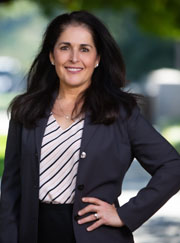
Home BiographyJen'nan Read in the News Contact
American Muslims and the 2012 Presidential Election
Michigan, Ohio, Virginia and other swing states that will help determine the 2012 presidential election have significant numbers of Muslim American voters.
Often misunderstood by other Americans, these voters can play a pivotal role in the 2012 election. In 2008, the question was whether or not they would turn out for Barack Obama to protest the Bush administration's conduct of foreign policy, or whether they’d agree with John McCain's approach to international affairs, as well as with his stand on taxes and other domestic policies?
I correctly argued that U.S. Muslims are far too diverse to be characterized in such sweeping terms. I demonstrated that they have above average levels of education and income and resemble other Americans in their values and beliefs, with political beliefs ranging from ultra-conservative to ultra-liberal. On some hot-button cultural issues, such as abortion and gay rights, I argued that the Christian right was potentially missing a strong ally in the Muslim American vote.
In 2008, this diversity decidedly swung in the favor of the Democratic Party. But just as was the case in 2004, when the Muslim American vote did an about-face away from the Republican Party (80% voted for Bush in 2000; 16% in 2004), such might be the case in 2012.
For more, use the contact page to reach Dr. Read, who is a Carnegie Scholar and an expert on Muslim American political assimilation.
Arab American Institute Foundation
http://www.aaiusa.org/
Council on American Islamic Relations
http://www.cair.com/
Georgetown Center for Muslim-Christian Understanding
http://cmcu.georgetown.edu/
Islamic Society of North America
http://www.isna.net/
Muslim Public Affairs Council
http://www.mpac.org/
One Nation
http://www.onenationforall.org/
